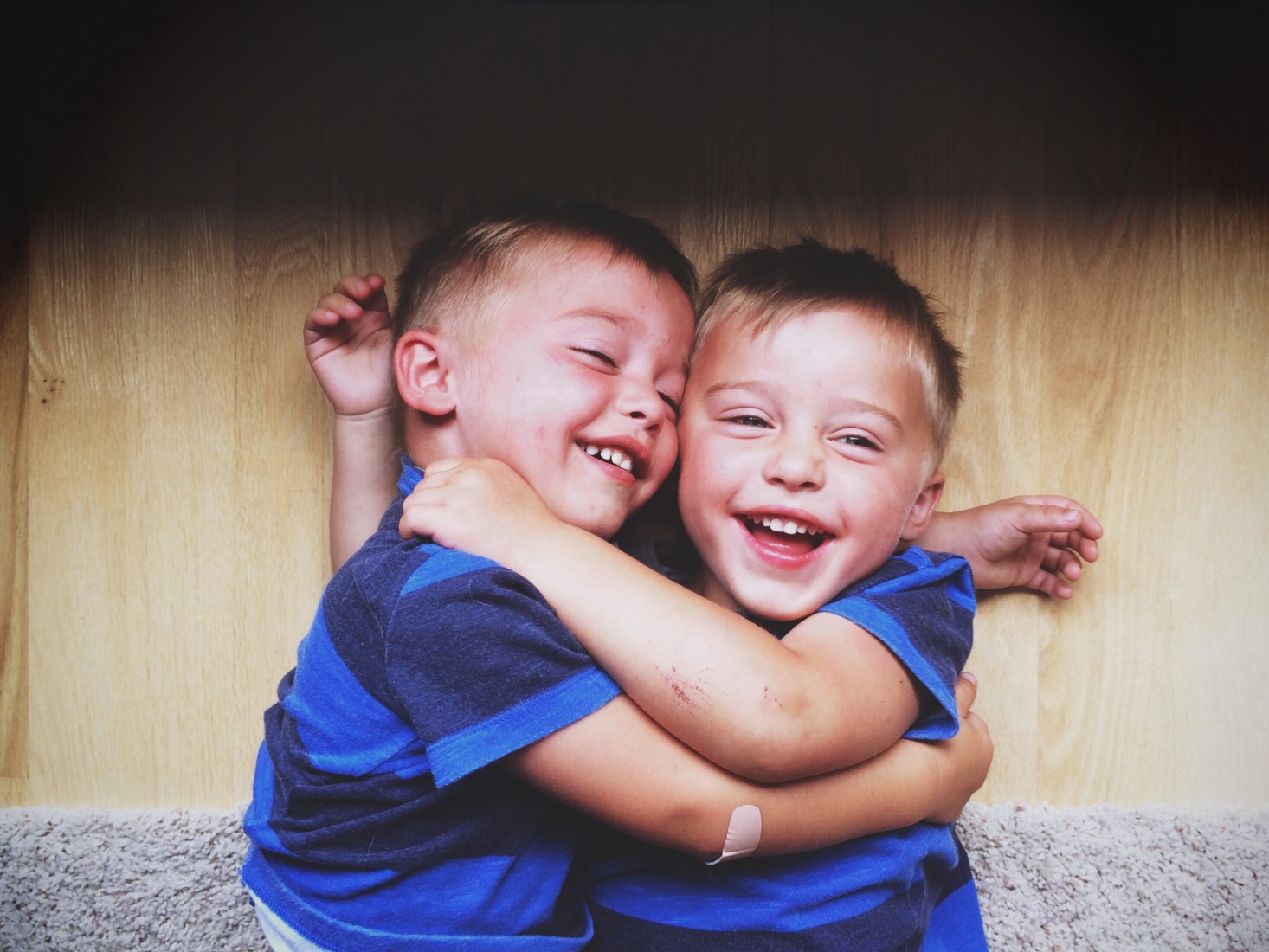“Say you’re sorry!” I said to one child as my other one sniffled. The offender scowled and barked out, “Sorry!” My other child cried harder. I threw my arms up, frustrated. Has this happened to you too?
I’ve learned that forcing an apology isn’t the best way to resolve an issue with kids. A better way takes a little more time and patience. With kids, apologizing is a skill they can learn while they’re young. Here’s the right way to encourage your child to say “I’m sorry” and why an apology is so important.
1. Give him time to think about his behavior.
In the heat of the moment, many kids are still angry about what just happened. Give your child time to cool down and reflect on his actions. Maybe he needs to sit on a timeout chair for a few minutes or go to his room, depending on his age. If you’re dealing with a tween or teen, he may need longer to reflect on his role in whatever happened. Let him. But don’t forget to circle back to the issue after he’s calmed down and had time alone to think.
Karina Schumman, an associate professor of psychology who studies conflict resolution, says that apologies are like “the super glue of life.” They’re important because they “show concern” and “that you care about the relationship, about the person, [and] that you want to make things right.” Time to cool down gives your child a chance to get to a place where he can offer a genuine apology.
Time to cool down gives your child a chance to get to a place where he can offer a genuine apology. Click To Tweet2. Help her to look at the situation from the other person’s point of view.
After she’s had some time to cool off, help your child to see the fight from the other person’s perspective: How would you feel if someone called you a jerk? Or if someone hit you? Would you like it if someone borrowed your markers without asking? How do you think your sister feels right now?
Forcing a kid’s apology probably won’t change the bad behavior, so it’s important to help your child see that what she did was wrong. If she’s able to acknowledge her role in it, she’ll be able then to move toward fixing the situation with the other person.
3. Define the behavior, and don’t ignore it.
“Hitting your sister is wrong no matter what. We don’t hit in this family.” Our kids need to learn what’s acceptable behavior and what isn’t. Robin McClure, an author and public-school administrator, also says that by ignoring a child’s bad behavior, “you are reinforcing to your child that bad behavior does not really matter and will not necessarily have any negative consequences.” Essentially, it gives your child permission to bite, lie, steal, or name-call again.
Learning that certain behaviors are wrong and unacceptable will teach your child to stay within acceptable boundaries.
4. Ask him how he can make the situation better.
My friend has her daughters hug to apologize after a fight, and that seems to help. But my kids are older and not as quick to forgive. Ask your child how he can make the situation better with the person he wronged. When I ask for my son’s opinion, this gets him thinking. Maybe he needs to realize he caused more damage to the other person than he thought. Schumann says it’s important for the wrongdoer to take responsibility for the offense so he can offer a genuine apology. You could ask your child what words he could use. He could say, “I messed up” or “I shouldn’t have done that.”
The key part of kids apologizing in a sincere way is accepting some of the blame. If he can get to that point, he can then follow up with a more heartfelt “I’m sorry” or even a hug or handshake if the other person seems open to it. For kids, apologizing is something they should certainly learn, but it’s not always easy.
5. Follow up.
“I’m glad you apologized. That took strength. I’m sure Millie appreciated it too. But you’ve still lost TV today for hitting her.” Praise your child for reaching the right conclusion and offering a genuine apology for what she did. This will encourage her to take responsibility for future offenses. But stay consistent with discipline as well. If you do, your child will learn there are consequences for certain behaviors.
Above all, reassure your child of your love. You might not like her behavior, but you’ll always love your child.
With kids, apologizing may not come easily. How do you help foster genuine apologies at home?










